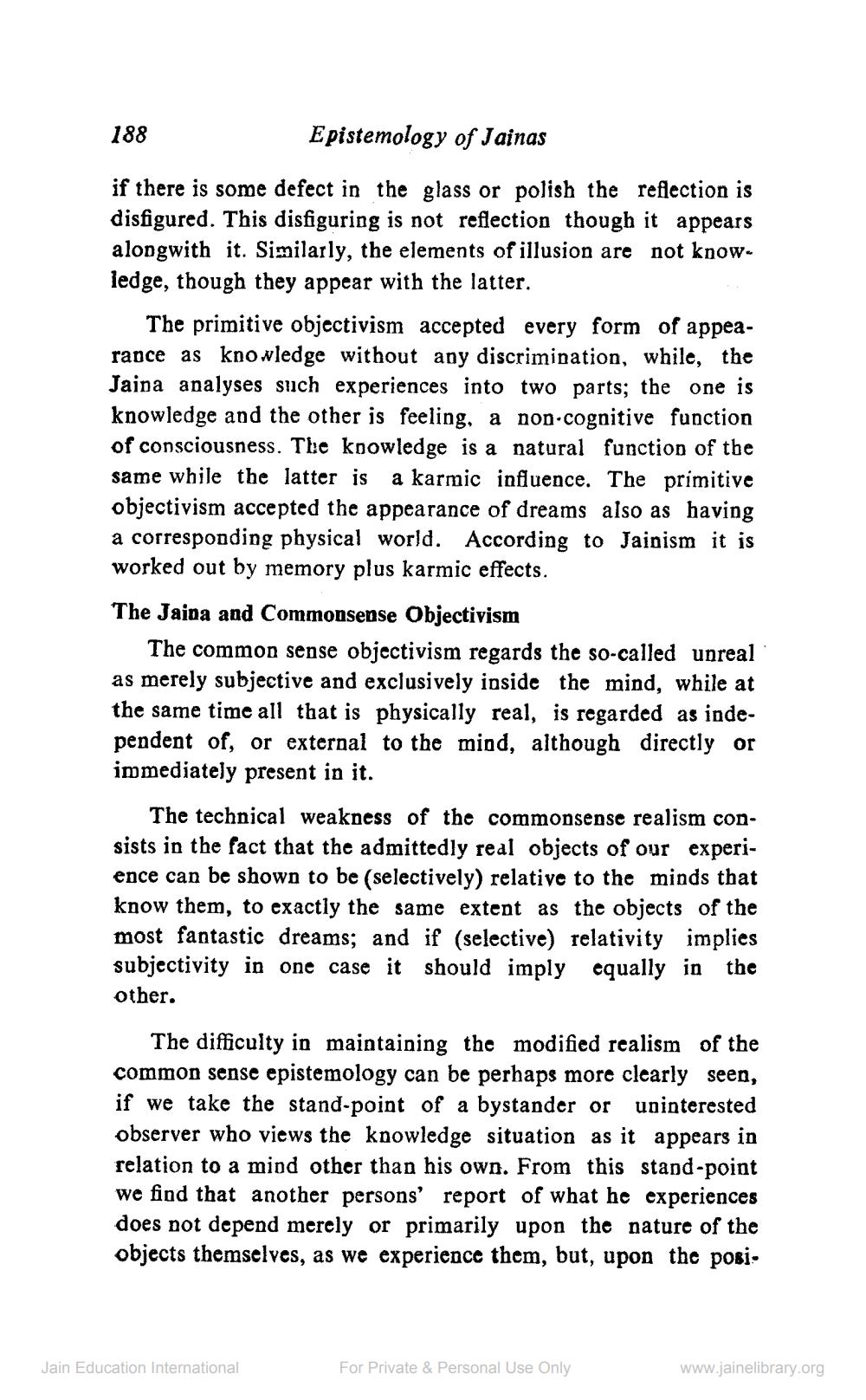________________
188
Epistemology of Jainas
if there is some defect in the glass or polish the reflection is disfigured. This disfiguring is not reflection though it appears alongwith it. Similarly, the elements of illusion are not knowledge, though they appear with the latter.
The primitive objectivism accepted every form of appearance as knowledge without any discrimination, while, the Jaina analyses such experiences into two parts; the one is knowledge and the other is feeling, a non-cognitive function of consciousness. The koowledge is a natural function of the same while the latter is a karmic influence. The primitive objectivism accepted the appearance of dreams also as having a corresponding physical world. According to Jainism it is worked out by memory plus karmic effects. The Jaina and Commonsense Objectivism
The common sense objectivism regards the so-called unreal as merely subjective and exclusively inside the mind, while at the same time all that is physically real, is regarded as independent of, or external to the mind, although directly or immediately present in it.
The technical weakness of the commonsense realism consists in the fact that the admittedly real objects of our experience can be shown to be (selectively) relative to the minds that know them, to exactly the same extent as the objects of the most fantastic dreams; and if (selective) relativity implies subjectivity in one case it should imply equally in the other.
The difficulty in maintaining the modified realism of the common sense epistemology can be perhaps more clearly seen, if we take the stand-point of a bystander or uninterested observer who views the knowledge situation as it appears in relation to a mind other than his own. From this stand-point we find that another persons' report of what he experiences does not depend merely or primarily upon the nature of the objects themselves, as we experience them, but, upon the posi.
Jain Education International
For Private & Personal Use Only
www.jainelibrary.org




